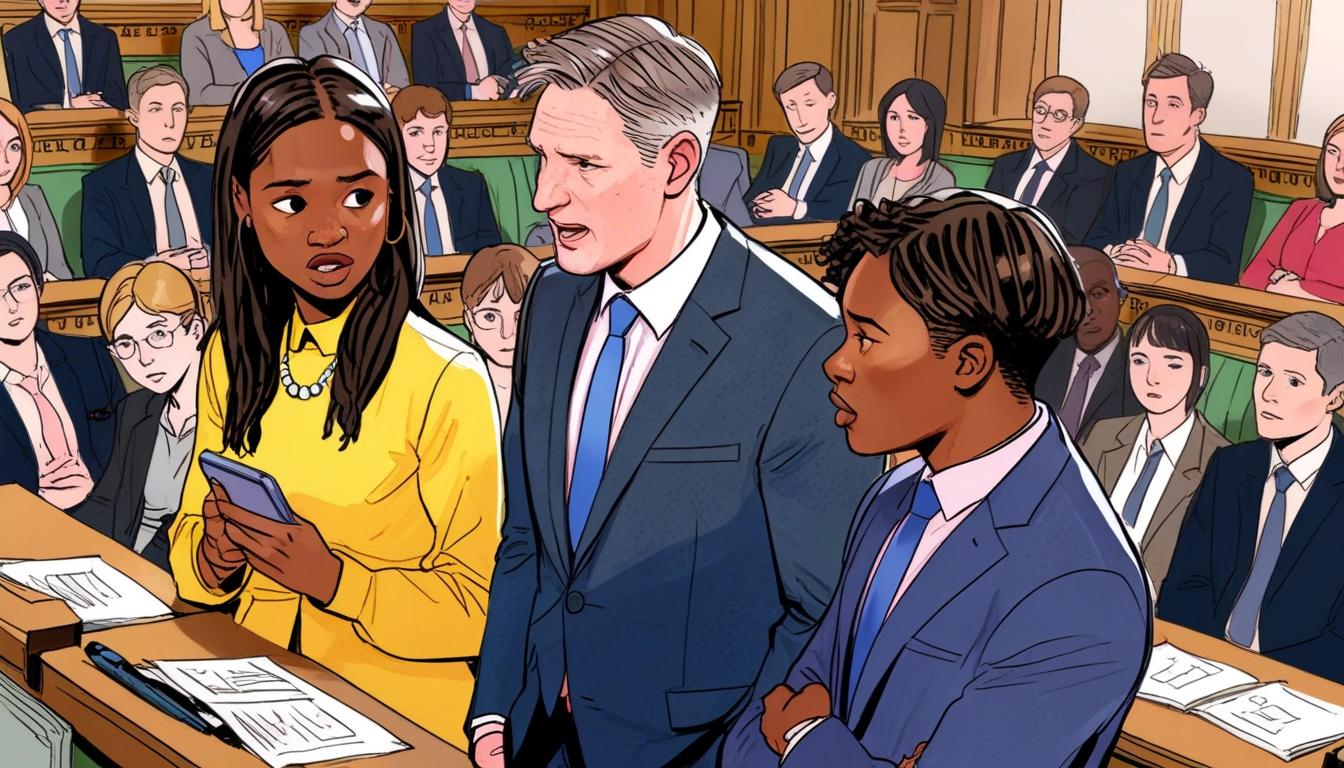Prime Minister Sir Keir Starmer faced scrutiny in the House of Commons on Wednesday as Conservative leader Kemi Badenoch challenged him regarding the Labour government's stance on mobile phone use in schools. The debate arose following Labour's decision to block a Conservative amendment to the Children's Wellbeing and Schools Bill, which sought to enforce a ban on mobile phones during school hours across England.
Addressing the Commons, Badenoch accused the government of failing to support a proposal that would mandate all schools to prohibit mobile phone usage. She claimed that only one in ten schools currently operates without smartphones, asserting that banning phones could lead to improved academic performance, as echoed by numerous teachers and headteachers. She queried, “If the ban is ‘unnecessary’, then why is it that they started a review?” This pointed towards Labour's contradictory approach regarding the phone issue, which had previously been described by Education Secretary Bridget Phillipson as a “gimmick.”
In response, Sir Keir maintained that an overarching ban was “completely unnecessary,” citing that “almost every school already bans phones.” He emphasised the importance of focusing on the digital content accessible to children rather than on school policies regarding phones. Sir Keir stated, “The battle is not with schools that are already banning phones in school. The battle is to work together to ensure that we can ensure that the content that children are accessing wherever they are is suitable for their age.”
Amidst the exchanges, Badenoch pressed further, highlighting concerns over discipline within classrooms, stating that mobile phones disrupt nearly half of GCSE classes. In defending the actions of his government, Sir Keir pointed to the failures of the previous Conservative administration, which, he argued, left many students unprepared in key developmental areas, including reading and mathematics.
Adding to the debate, Sir Martyn Oliver, the chief inspector of Ofsted, expressed his support for outright bans on smartphones in schools, characterising unregulated access to online content as harmful and potentially damaging to young individuals. Speaking at a public event in London, Oliver reflected on his experiences in various schools, where he observed significant disturbances linked to mobile phone use. He suggested that headteachers should take decisive actions to limit phone access for the benefit of student wellbeing and overall school discipline, stating, “Headteachers already have the power to ban them and they should ban them.”
This ongoing issue reflects a broader national discourse on the role of technology in education, with school leaders and government officials grappling to find a balance between the benefits of technological integration in learning and the necessity of maintaining educational environments conducive to discipline and focus.
The implications of these discussions are far-reaching, as they intersect with educational policy, child welfare, and societal responses to the growing influence of digital technology on young people. As the debate progresses, the government’s position may evolve, particularly in light of ongoing pressures from various political factions and educational leaders advocating for stringent mobile phone policies in schools.
Source: Noah Wire Services
